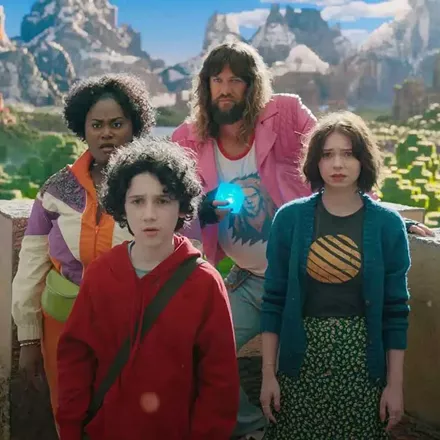
- Universal Pictures
For the life of me, I don't understand the impulse by filmmakers to build their stories around a visual gimmick like "I'm going to make it all look like one real-time single take," as is the case in Sam Mendes' 1917. From a marketing standpoint, it makes sense; it's easy to get audiences, and sometimes even critics, talking about something that seems to have a challenging technical approach. And if you're a director like Alfred Hitchcock, using that single-take conceit to have fun with the medium like he did with Rope, that's one thing. But it's also a way to guarantee that people are looking for the cracks, trying to figure out how the magician did the trick. If you're telling a story, and you want your viewers completely immersed, what value is there in repeatedly reminding them, "This shot was really hard to pull off?"
It's even more frustrating when there's a lot about 1917 that's impressive aside from Mendes' Rope trick. The setup places us on the World War I front lines of France in April 1917, as British army Lance Corporals Blake (Dean-Charles Chapman) and Schofield (George MacKay) are given an important assignment. A company of British soldiers—including Blake's older brother—is preparing to launch an offensive, believing that the retreating Germans are on the run, when in fact they're being lured into a trap. So it's left to the two men to travel across No Man's Land and find their fellow soldiers and deliver the message that will prevent a suicide mission.
Of course, it's possible that Blake and Schofield themselves are on a suicide mission. Mendes—who also co-wrote the script, with Krysty Wilson-Cairns—builds tension into their harrowing journey from the outset, watching our protagonists make their way through a landscape strewn with horse carcasses, venture into the abandoned German trenches, and wonder whether enemy soldiers might be around the next corner. Veteran cinematographer Roger Deakins lends his distinctive touch to venues ranging from darkened bunkers to night skies illuminated by little more than burning buildings, finding a way to make this journey both urgently real and, as time goes on and weariness sets in, increasingly hallucinatory.
But then there's that whole gimmick thing, and for some folks that's going to be a big part of what amps up the stakes and the intensity. Yet while it's clear that, from a technical standpoint, choreographing the camera movement had to be hugely complicated in some of 1917's tight spaces, it's not like you can't spot the places where the narrative is stitched together: a journey into a darkened tunnel here, a moment where a main character is rendered unconscious there. And more to the point, a movie that wants to immerse me in the you-are-there terror of life on the front lines shouldn't be distracting me with wondering where the edits are. A story built on the notion of feeling it shouldn't leave you instead simply admiring its technique from a slight remove.
In fact, it's quite easy to imagine a more conventional telling of this same narrative that loses nothing from that conventionality. It's actually quite strikingly paced, finding an ideal mix of moments that allow you to catch your breath, before throwing you, generally unexpectedly, into a new moment of chaos. MacKay in particular is a terrific center for these events, conveying a soldier who, like most of these men, occupies the narrow strip of psychological territory between abject terror and grim determination to survive. The moments where he shows his humanity most—like an encounter with a young French woman hiding out in a bombed-out building—become the stark counterpoint showing how much of men's best selves is lost when they're forced to do the horrible things that war demands of them.
Perhaps it's too easy to second-guess not just the kind of story a filmmaker tries to tell, but the way they try to tell it. It's just hard not to see an implicit suggestion that, since moviegoers are bound to be intently aware of the cinematic trick being undertaken, this was the only way to tell this particular story of a brutal war and its toll on both bodies and minds. That story is compelling enough on its own that I couldn't stop wondering, "What if I wasn't thinking how hard it was to do this as a single 9-minute take?"




